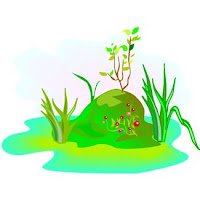 |
| (Microsoft Media) |
Peter still likes Microsoft. That was his statement in September 2012. He's been with them ever since the days of DOS 3.2, he stressed, and five-and-a-quarter-inch floppy disks, no hard-disk drive, 512 KB of basic and total memory. That was the hardware Microsoft software was running on at the time.
People younger than 25 will never even have heard of DOS 3.2, let alone of PCs with only 512 KB of memory. Really? And that worked? What could you do with it?
And people in their early thirties in 2012 were most likely too young at the time of DOS 3.2.Though, surprisingly, in the index of a book about Windows 7 , which Peter had been browsing through only the day before telling me, he had read that there was something for people who liked MS DOS, and he could hardly believe it and said he was keen to find out what this was as soon as he found some time.
 |
| (Microsoft Media) |
Listening to Peter, I was wondering if it was the command-prompt icon that's been with Windows for so long or even more than that? A complete MS DOS 3.2 emulation? Peter will surely tell me in the fullness of time.
But for Peter, DOS 3.2 was the beginning, his entry into the computer age. And he's been following Microsoft through all its stages of software evolution, or one might be tempted to add "intelligent design" because in this case it is pretty certain that it wasn't just a sequence of coincidences, although outside influences to some extent, and mistakes and over-enthusiasm arising from within cannot be denied.
And Peter's product loyalty also applies to Word and Excel; in the Windows 3.1 age Publisher came in too; and Access and PowerPoint came and went for Peter in waves of their usefulness to his professional ambitions.
 |
| (Microsoft Media) |
But since 2006 Peter has remained stuck in the World of Windows XP and Office 2000, and Microsoft is probably not going to like this: Peter is still utterly pleased with Windows XP and content to have read the other day that it is still the world's most appreciated and most widespread operating system.
As far as Office 2000 is concerned, Peter said he wasn't so certain. How many people might still be using is; or rather, how many have got a more advanced Office level taken there have been quite a few upgrades since 2000? But as far as Peter is concerned: Office 2000 does everything he needs and more still, things and functions that he's never even heard of, let alone used.
His greatest secret that he confided in me was that he still had an ancient old office PC that kept running and running, a PC that he was once allowed to take home, because the thing had been fully depreciated and wasn't going to be used any longer, and that was still running on Windows 98. I was flabbergasted.
He couldn't go online with it any longer, he whispered, because Windows 98 wasn't supported any more by Microsoft (which came as no surprise to me), but it was so nice and cute, and he used it when he didn't need to go online, and he had Office 2000 running on it, too, and to balance out the missing Internet connection to look up things he didn't know, he had a CD-based encyclopaedia that worked fine on Windows 98.
 |
| (Microsoft Media) |
He even let me know, top secret, that he still had a Windows 95 installation CD and that he would have installed that on the ancient PC if only, and that was it, that revealed the limit even for Peter, it supported USB ports. So that was one of Peter's minimum requirements. And even Peter had a mobile phone to be contacted, and even a touch-screen one. The two sides of Peter. I was amazed.
Peter just loves Windows XP (and Windows 98 a bit, too, one may assume), although he can surely imagine, he said, that Microsoft would appreciate it if he could at long last pull himself together and upgrade to Windows 7, now that this operating system, in late 2012, is already three years old and Windows 8 is about to be released, or has it already, Peter was wondering, since he'd read the other day that Mozilla was working at the adaptation of its Firefox browser to the new Windows-8 touch-screen environment.
 |
| (Microsoft Media) |
So Peter bought himself a plain & simple guide to Windows 7, and that's also pretty much the title of the book, and, wait for this, it's by Microsoft Press, and to such a convinced devotee of so many years as Peter, that was just marvellous.
But knowing Peter, he might, though getting to know Windows 7 in such a nice, colourful and entertaining way, still end up being happy with the knowledge and hold out and keep working with Windows XP until the end of its extended life-cycle in April 2014.



























